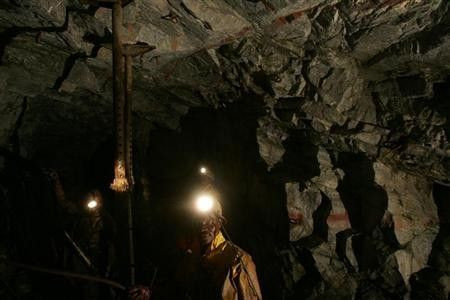Zimplats says Zimbabwe moves on licence

The Zimbabwean unit of Impala Platinum, the world's second-largest producer of the precious metal, said the government had taken steps to revoke its operating licence and it remained in talks with authorities.
The government has been trying to get miners to transfer 51 percent stakes in their local operations to black Zimbabweans.
Implats shares closed 3 percent lower on Thursday after the official Herald newspaper reported Zimbabwe had begun the process to suspend the licence of its Zimplats unit, which accounts for about 10 percent of group output.
Zimplats said Zimbabwe's empowerment minister, who has rejected the company's share transfer plan, had asked the mining ministry to cancel its operating licence.
Zimplats also said the only major area of disagreement was a mining area it gave up in 2006 -- known as a release of ground -- that it wanted to count as credits in its plan to comply with the law. The government acknowledges the existence and validity of the agreement, but wants to renegotiate certain terms.
Analysts have said the government of President Robert Mugabe was trying to wring concessions from mines, with an eye to funds for an election next year, and it was possible a deal could be in the offing.
Canadian group Caledonia Mining said on August 19 the empowerment minister had asked the minister of mines to cancel the operating licence of its Blanket Gold Mine. Days later, it said the cancellation had been suspended.
The Herald newspaper, considered a government mouthpiece, said on Thursday: Leading the band of delinquent foreign-owned mining firms is ... Zimplats, which might be first to lose its licence.
Empowerment minister Saviour Kasukuwere had said on Tuesday the government might move on Zimplats.
He also said agreement had been reached with with Rio Tinto's Murowa mine and a deal was imminent on the Mimosa mine, which Implats shares in a 50/50 joint venture with Aquarius Platinum.
The Herald said on Thursday their plans had been deemed acceptable and were awaiting final approval. The details of such plans remain murky as nobody, public or private, in Zimbabwe has the money to buy 51 percent stakes in lucrative local mining operations.
The government's continued tough stance was likely scaring investors who had believed it would not carry through on earlier threats, said Mitchell Gannaway, a trader at Thebe Securities in Johannesburg.
People are realising that things just are not going to work out in Zimbabwe. I am sure some people thought the government was not going to do anything, he said.
© Copyright Thomson Reuters 2024. All rights reserved.





















